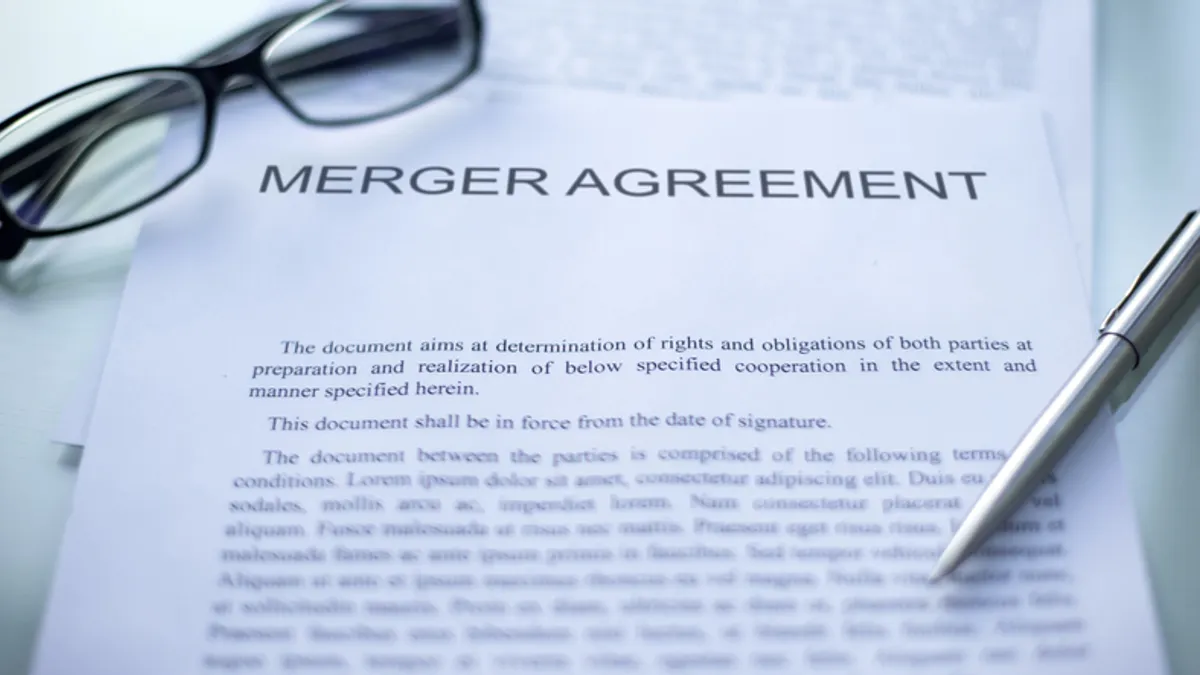Federal antitrust enforcers have stepped up their deal scrutiny in recent years, particularly in the technology and healthcare industries, and yet they’re letting hundreds of mergers a year pass without review because of the way asset values are measured, Stanford and University of Chicago researchers say.
The threshold criteria the agencies use for determining deals that get reviewed are based on valuations measured by generally accepted accounting principals, but the lion’s share of companies’ value today, especially in the most dynamic parts of the economy, are the intangible assets that GAAP mostly misses, say the researchers in a paper called Competition Enforcement and Accounting for Intangible Capital.
“Asset-size thresholds lead to thousands of deals — especially in technology and pharmaceutical sectors — going unreported to the FTC and DOJ, even when their transaction values are nearly identical to those that are reported,” say John Kepler of Stanford and Charles McClure and Christopher Stewart of the University of Chicago.
Intangible assets include patents and other intellectual property, software, customer information and other data sets, agreements and branding. GAAP accounting focuses on the kind of hard assets that go into producing goods and services like real property, office equipment and machinery.
The researchers think companies are closing hundreds of deals a year without reporting them.
“If regulators required firms to include intangible capital … we estimate that the number of reported deals would rise by about 263 annually,” say the researchers, using 2001-2019 data.
Had those additional 263 deals been included in 2019, for example, almost 1,100 deals would have come under what’s known as the Hart-Scott-Rodino review process rather than the roughly 800 that did.
Under the agencies’ criteria, companies don’t need to report deals valued at $90 million or less, while deals valued at $360 million are subject to automatic scrutiny. The thresholds are based on 2019 data for purposes of the research. They’re higher today, because the dollar amounts are based on changes in U.S. gross national income.
For deals that fall between those two levels, the agencies look at the valuations of the two companies separately and require review if one of them meets a certain level.
Money-making ventures
The researchers say companies and their investors are benefiting from closing deals without government scrutiny because they can take advantage of anticompetitive combinations without generating pushback that would have come from review.
Among other things, they’re able to kill emerging technologies that otherwise would have posed a competitive threat. As a result, the deals tend to attract higher purchase premiums and generate more money for equity holders.
Unreported deals “carry a 12% higher premium than reported deals” and generate a “5.6% increase in the acquirers’ equity values,” the study says. The deals also tend to be concentrated in markets “where anticompetitive behavior is most likely to arise.”
In short, accounting is helping companies hide potentially anticompetitive mergers from DOJ and the FTC, the researchers say.
















